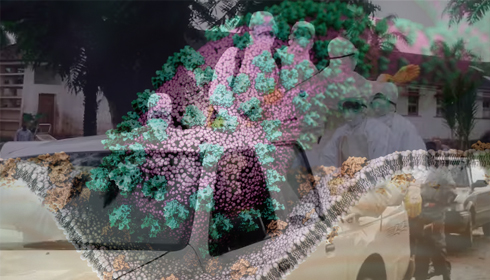
WHO Lauds Rwanda’s Marburg Response, Urges Continued Vigilance
The WHO Director-General has lauded Rwanda's handling of the recent Marburg virus illness outbreak as a remarkable example of effective leadership and preparedness in the fight against viral hemorrhagic fevers. This outbreak, which raised alarms due to the severity of the disease and its rapid spread, was met with an organized, swift, and coordinated response from the Rwandan government. The Director-General emphasized that Rwanda’s timely and decisive actions in the face of such a threat underscore the importance of strong, proactive leadership at all levels of government.
The WHO Director-General commended Rwanda's Minister of Health and President Paul Kagame for their initiative in containing the outbreak during a recent visit to the country. "In any outbreak response, the highest levels of government must demonstrate leadership, as is the case in Rwanda. I appreciate your leadership, Mr. President and Mr. Minister," he said. The government's swift action has halted the virus's spread, resulting in no new cases reported in the past six days.
The pandemic has brought attention to Rwanda's ongoing attempts to improve its healthcare system, which is essential to reaching the Sustainable Development Goals (SDG) by 2030. Over many years, Rwanda's healthcare infrastructure has developed superior capabilities for critical care and life support, which have proven crucial during the outbreak. The Director-General of the World Health Organisation expressed his respect, saying, "Two of the patients we met had experienced all the symptoms of Marburg, including multiple organ failure, but we successfully intubated and extubated them." In earlier outbreaks, these patients would have perished.
This effective treatment demonstrates Rwanda's readiness to handle infectious diseases and emphasizes the value of critical care capability in addressing upcoming medical crises. The nation's continuing clinical trials for Marburg vaccines and treatments, the first of their sort in Africa, provide additional support to the country's efforts. Rwanda's start of trials with collaborators like the Sabin Vaccine Institute and the University of Oxford has established the nation as a leader in creating treatments for neglected tropical diseases, even though there are currently no licensed vaccines or treatments for the Marburg virus. "We congratulate Rwanda for the speed with which it initiated trials of both vaccines and therapeutics, and we hope these trials will help to generate the data to support approval of these products for future outbreaks," stressed the Director-General of the World Health Organisation.
Rwanda's reaction not only addresses the current health crisis but also aims to improve local vaccine production—a major takeaway from the COVID-19 pandemic. The nation's commitment to reducing vaccination disparities is evident in the establishment of the BioNTech vaccine manufacturing plant in Kigali. This strategic investment serves as a long-term solution to ensure equitable access to vaccinations for everyone in Africa, while also responding to the current outbreak. The WHO Director-General stated, "We hope these strategic investments will fix the equity problems we faced during COVID."
The battle against the Marburg virus is still ongoing, though. Until the outbreak is formally declared over, WHO stressed the need for ongoing vigilance, including improved surveillance, contact tracing, and infection prevention measures. "Restrictions on travel or trade are unnecessary and can harm Rwanda's economy," the organization said, in reference to the needless travel restrictions that could hurt the country's economy.
The successful containment of the Marburg virus outbreak in Rwanda demonstrates the advancements in healthcare that the nation has made, which aligns with the overarching objective of attaining SDG 2030. In this battle, the commitment of front-line healthcare providers and the backing of allies like the United States, the United Kingdom, and the European Union have been crucial. Rwanda continues to provide an example for other countries by modeling how to confront global health issues head-on.